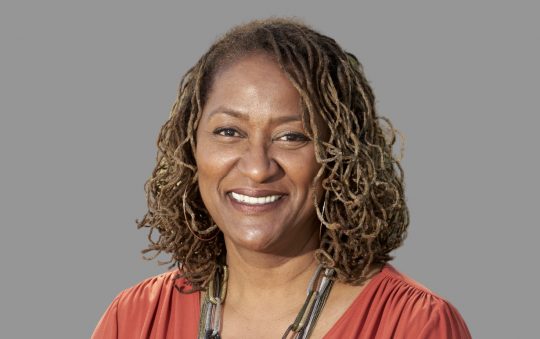
Father Chukucha cuts a lone figure as he circles the withering garden of his parish in Mberengwa, one of the poorest districts of the middle of Zimbabwe. While 250 miles away in another district, Pastor Noel Fengu, a Baptist minister, pans for gold in dirty brown rivers, joining “illegal” artisanal miners who are members of his congregation.
Something unites them — rising rural church poverty and pastors’ unconventional ways to dodge it.
“If rural churches in Zimbabwe were struggling before COVID-19 and the Russia-Ukraine war, now they’re on the edge,” said Pastor Fengu, who leads 90 worshipers weekly in the Independent Baptist Union Zimbabwe congregation.
Two distant global phenomena have deepened the menace of poverty on Zimbabwe’s rural church ministers and their flocks.
First, Russia’s atrocious invasion of Ukraine has accelerated record inflation in Africa, particularly fuel and grain prices. In Zimbabwe, inflation is tiptoeing around a dreadful 100% and the national currency is on the verge of total rejection by citizens. Also, the residual effects of the pandemic have gobbled 23% of all wage-earning jobs in Zimbabwe, a place where corruption already was entrenched. Further, American Christian charities that used to sustain the resources of rural churches have redirected most of their budgets to the refugee horror in Ukraine.
“If the flock sweats to have one meal a day, then pastors can’t be immune,” said Deline Chikoshana, a lecturer at Rusitu Bible College, a training seminary in east Zimbabwe.
But when it comes to the remuneration of clergy in Zimbabwe, there’s an interesting subculture. In Zimbabwe, city pastors may fare well while rural ministers live on the periphery of poverty.
“City pastors are buffeted with tithes, better wages, allowances and gifts from city congregants who’re usually professionals: nurses, accountants, dentists,” Chikoshana explained. “City pastors even have 4G broadband to conduct e-sermons.”
So even if church wages are sporadic and unreliable in Zimbabwe, the gifts city pastors receive shield them from destitution.
But Zimbabwe’s rural districts are hotspots of entrenched household poverty due to a lack of industrialization and secure technology. So, rural church ministers, because they are stationed in districts buffeted by poverty, share the hellish experience of one of the world’s most troubled economies.
“In this agony, St. Paul’s Galatians 6 directive that Christians must feed their pastors has been forgotten because the congregation is hungry too,” said Father Chukucha, who has taken to allying with his community to brew unlicensed grain beer for sale to cash-rich artisanal gold miners in his district.
He doesn’t feel conflicted about his side gig. “Fathers brewing, selling craft beer? Belgian Catholic monks have been brewing pricey beer for centuries in monasteries which they also drink during Lent fasting. I’m simply copying this to survive poverty here in Zimbabwe.”
Pastor Fengu, the Baptist minister, concurs with the Catholic priest. He works in Chimanimani, one of Zimbabwe’s richest sites of alluvial gold ore deposits. He doesn’t mind wearing boots, using shovels and digging for gold ore in dirty rivers with his congregants who survive on artisanal mining too.
“Artisanal gold mining, it’s illegal in Zimbabwe but authorities look aside because communities are hungry,” he said. “As a pastor, I dig and sell 2 grams of gold ore weekly for $99. That’s how I buy food and remain a pastor since my struggling Baptist church hasn’t paid me wages for two years now.”
He’s not alone as dozens of other unpaid rural Pentecostals, evangelical or Adventist pastors in his Chimanimani district dabble in artisanal gold mining too to keep afloat.
“I’m not a city pastor but maybe God strategically placed me in a rural district awash with lucrative earth minerals,” he said, proudly flashing a miner’s torch to peer at a dirty brown rock boulder that he says bears the marks of gold ore crystals.
That rural pastors in Zimbabwe are crossing the thin line between maintaining ethics and dabbling in unconventional income-earning endeavors like beer making or unlicensed artisanal gold mining is a practical matter of living.
“For us, it’s pragmatism,” Pastor Fengu said. “Otherwise we impoverished pastors would abandon the calling in rural Zimbabwe.”
What these entrepreneurial rural church ministers are doing actually is good in that it opens a needed dialogue about sustainable church financing in rural settings of very poor countries like Zimbabwe, said Chikoshana the Baptist academic. “In the post-COVID, post-inflation world, will rural churches in Africa continue to depend on the mercy of charities in the U.S. and Western Europe? Or they must stand on their feet and make do with the agricultural land, earth minerals in their location?”
As for Pastor Fengu the Baptist minister, profiting from mining doesn’t dent his passion for the ministry. “Each Sunday when I wear my dog collar, my side gig as an artisanal gold miner doesn’t diminish my standing as a pastor in any way.”
Audrey Simango is a Zimbabwe freelance reporter. Her work appears in New Arab, Newsweek, The Africa Report, and The New Internationalist.







